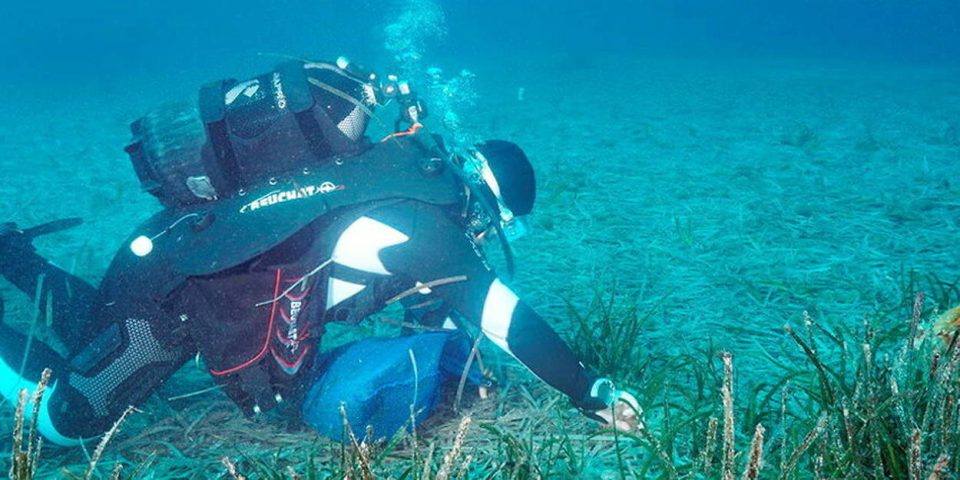Reserved for subscribers
Near Bonifacio, scientists are regenerating posidonia seagrass beds, real “lungs of the Mediterranean” battered by tourism.

Careful. Posidonia cuttings are transplanted into the matte of the Gulf of Santa-Manza.
By Julian Mattei
Published on
Copied link
Copy the link
Le landscape is worthy of a postcard. The lapping of nonchalant waves comes to rock a sandbar that seems immutable on Balistra beach. It is difficult, at first glance, to suspect that this enchanting setting, in the heart of the largest nature reserve in France, that of the Bouches de Bonifacio (Corsica-du-Sud), shelters one of the most fragile sectors of the Mediterranean. A few meters from the shore, a vast underwater meadow is gradually disappearing from the Gulf of Santa-Manza. Over the past twenty years, this posidonia herbarium has lost almost 50 hectares, or 8% of its area. Therefore, marine organisms that live in what is for them at the same time a dormitory, a pantry and a nursery lose an essential link in their biological cycle.
Posidonia, plant in fl…
University of Corsica (x4)
Comment
You can no longer react to articles following the submission of contributions that do not meet the moderation charter of the Point.

